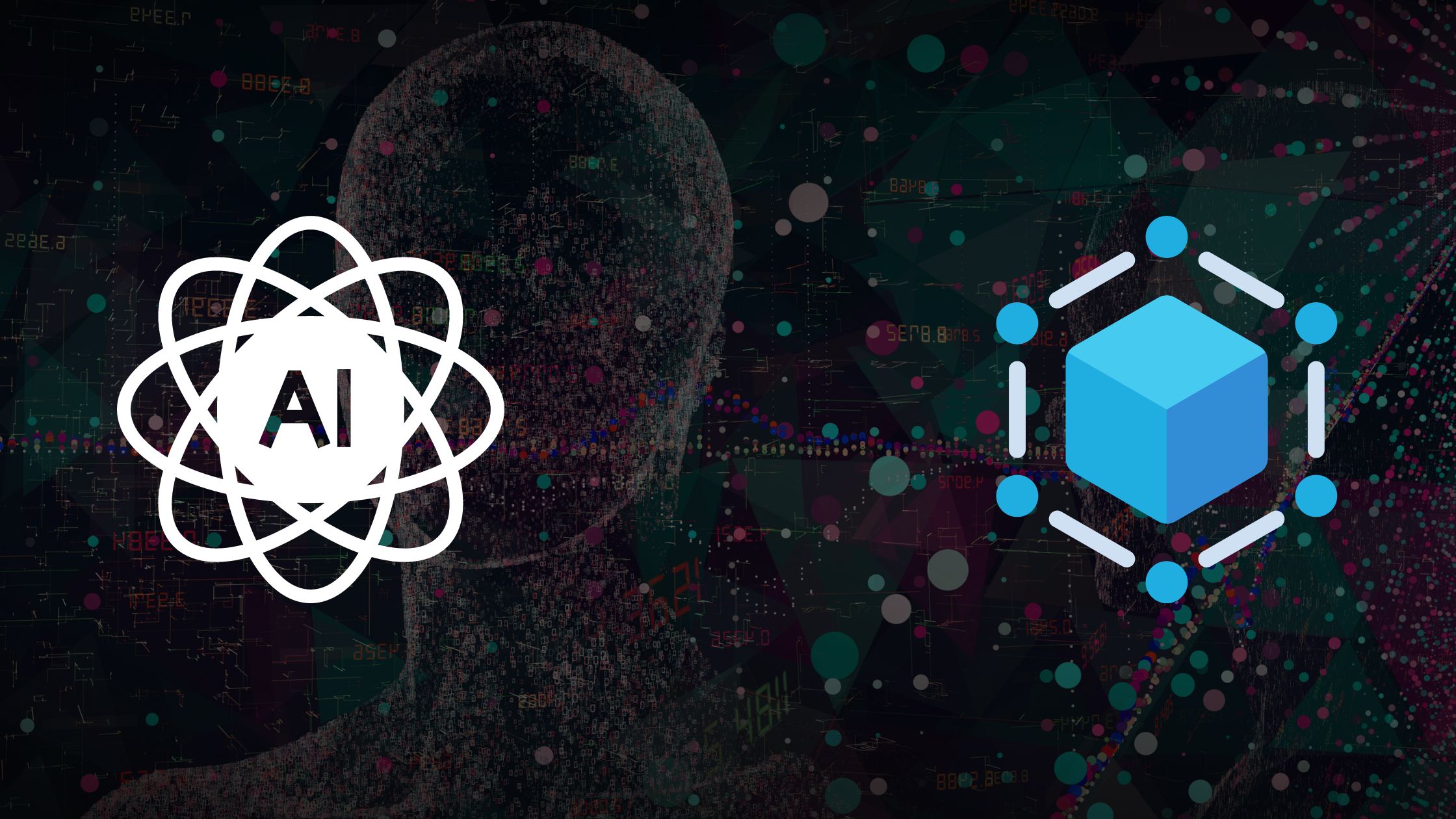
Hello Blockchain Geeks! How are you all doing?
It’s been a long since we last discussed the “Intersection of Artificial Intelligence (AI)” in Blockchain technology. So, we decided to pick up from where we left off on the last web blog about the alliance of Crypto & AI.
In this web blog, we’ll learn about the fusion of AI and Blockchain in the healthcare system. We can all agree that healthcare is the most important thing that everyone strives for. But behind closed doors, handling healthcare data, making new drugs, and keeping all the patient records organized can be a real headache. Healthcare systems, hospitals, and clinics need help securing this data. Security isn’t the only issue they’re working with; making the data easily accessible and up-to-date seamlessly is also challenging.
These challenges make it difficult for healthcare providers to deliver optimal care. Take a patient, for example, whose medical history might be partial because their records are kept in various places. New developments take time because of the high cost and complicated process.
Data privacy issues are enormous as patient information is susceptible and needs to be protected at all costs. This is where AI and blockchain technology come in. Think of AI as your intelligent assistant that can manage large amounts of data quickly and accurately. As a highly secured ledger, Blockchain can keep all the data transparent. Merging AI and Blockchain offers exciting solutions to healthcare industry problems. By leveraging the analytical capabilities of AI and the security features of Blockchain, we can create a strong, secure, & efficient healthcare system.
AI And Blockchain for Data Management
Healthcare has lots of data. But the old ways of managing it have problems. Privacy, security, interoperability, and access can be issues. AI and Blockchain may have the answer. Blockchain can store healthcare data securely. It’s not like the old central databases that can be hacked. Instead, Blockchain uses a distributed ledger. This means data is saved on many nodes. They are making it hard for anyone to mess with the data. Plus, with Blockchain, once data is saved, it’s stuck. It can’t be changed or erased. This is key for keeping medical records accurate and dependable.
Benefits of Blockchain for Data Security, Privacy, & Interoperability
The use of Blockchain for securing data, maintaining privacy, and working with information is beneficial. It offers:
1. Better Safety: With its coding features, Blockchain keeps data safe from unwanted meddling or peeping.
2. More Privacy: You’re in charge of your data with Blockchain. You decide what you want to share.
3. Easier Working with Different Systems: Blockchain makes data sharing between different health systems easy, which is good for patient care.
4. Keeping Track of Data: Blockchain keeps check on where data comes from and who owns it. It keeps things clear and accountable.
AI is also great for studying health data and giving us useful information. It’s good at going through lots of data and finding patterns.
AI for Healthcare Data Analysis and Insights
For healthcare data, AI can:
- Spot Disease Trends: Look at patient records to find early disease signs and offer ways to stop them from happening.
- Create Treatment Plans: Create treatment plans based on individual patient data and healthcare rules.
- Find New Drugs: Studies molecules and biology to find potential new drugs.
- Make Things Run Smoothly: Helps with organizing resources, scheduling appointments, and keeping track of stock.
AI-Powered Predictive Analytics for Personalized Medicine
Personalized Medicine with AI-Predictive Analytics AI, paired with blockchain-secured health records, allows for creation of in-depth predictive models for custom healthcare. These models consider a person’s genetics, medical past, and lifestyle to anticipate health risks and personalize treatment plans. This method can innovate healthcare, bringing more effective and specific treatments.
Data Standardization & Interoperability
Need for Data Standardization and Interoperability AI and blockchain need data standardization and interoperability to function well in healthcare. Uniform data layouts and terminologies are crucial for accurate analysis and data communication. Blockchain can help set data norms and secure exchange between various healthcare systems. By solving data management issues with AI and Blockchain’s combined strength, the healthcare sector can uncover new ways to improve patient results, quicken research, and boost overall productivity.
AI and Blockchain in Drug Development
AI Boosts Drug Finding and Refining AI is quickly supercharging the process of discovering and developing drugs. It helps in several primary ways:
- Finding Targets: AI programs can sift through vast amounts of biological data. They aim to find possible drug targets, like molecules or processes linked to illnesses.
- Designing Drugs: AI-powered apps can make new drug candidates. They predict how these drugs would work and interact in the body.
- Bettering Clinical Trials: AI can analyze patient information to decide who would be best for clinical trials. It can also guess how trials will turn out and improve them.
Blockchain for Secure and Transparent Clinical Trials
Clinical Trial Data Safe and Trackable Clinical trials make a lot of data. Often, this data is hard to share because it’s stored separately. Blockchain is a good fix. It keeps data safe and transparent:
- Data Stays Real: Blockchain makes sure the clinical trial data is real and has not been changed. It stops cheating and fraud.
- Data Stays Private: With Blockchain, you can share patient details safely. Privacy is still kept.
- Sharing Data Is Easier: Blockchain helps researchers share data securely and without trouble. Through supply chains, drugs are kept trackable. Blockchain can follow drug movements, stopping counterfeits.
AI for Patient Data Analysis and Personalized Treatment Plans
AI can unlock the potential of patient data by:
- Predictive Analytics: Analyzing patient data to identify disease risks and predict health outcomes.
- Personalized Medicine: Developing tailored treatment plans based on individual patient characteristics.
- Drug Discovery: Identifying potential drug candidates by analyzing patient data and genetic information.
- Clinical Decision Support: Providing healthcare providers with evidence-based recommendations.
AI-Powered Chatbots for Patient Engagement and Support
AI-powered chatbots can enhance patient engagement and support by:
- Providing Health Information: Answering patient questions and providing educational resources.
- Scheduling Appointments: Streamlining the appointment booking process.
- Remote Patient Monitoring: Collecting patient data and alerting healthcare providers to potential issues.
- Mental Health Support: Offering emotional support and resources for patients with mental health conditions.
Ethical Implications of AI and Blockchain in Healthcare
While AI and Blockchain offer significant benefits, it’s essential to address ethical considerations:
- Data Privacy: Ensuring patient data is protected and used responsibly.
- Algorithmic Bias: Mitigating biases in AI algorithms to prevent discrimination.
- Patient Autonomy: Balancing the benefits of personalized medicine with patient autonomy and choice.
- Healthcare Disparities: Addressing potential disparities in access to AI and blockchain-powered healthcare services.
By carefully addressing these ethical concerns, the healthcare industry can harness AI and Blockchain’s full potential to improve patient care, outcomes, and overall well-being.
Wrapping Up!
AI and Blockchain, when combined, could hugely change the healthcare industry. These two can tackle significant issues like privacy, compatibility, and drug discovery. This impressive duo could drastically better patient care, cut costs, and move medical research forward. AI’s insightful input and Blockchain’s solid security can lead to custom health care solutions, well-used resources, and better decisions in clinics. Also, Blockchain can innovate in managing drug supply chains and ensure safe, genuine medications. Even, through AI and Blockchain’s use in healthcare, is new, and the future looks bright. To make the most benefits from these tech, we should conquer hurdles related to data standardization, compatibility, and rules of ethics. Continuous study, creation, and cooperation among health care providers, tech wizards, and policymakers are vital. By harnessing these fresh technologies, we can build a healthcare system that’s more resource-friendly, effective, and patient-focused.
Do you want to learn more about the Blockchain technology and crypto? Check out our Blogs section. Thank you for staying tuned with the Blockchainist!
People Also Asked For:
Q.1. Can AI and Blockchain help patients?
Ans: AI can examine a large amount of patient information to see patterns, predict how diseases can progress, and customize treatment plans. By securing and distributing patient data across varying health providers, Blockchain improves care coordination and boosts patient outcomes.
Q.2. Are there privacy and security issues with AI and Blockchain in healthcare? Ans: Blockchain does increase security, yet questions surrounding data privacy and safeguards linger. Key measures like encryption and access controls should be implemented to guard sensitive patient data. Besides, biases in AI algorithms need addressing to prevent unfairness.
Q.3. How do AI and Blockchain affect healthcare professionals’ roles?
Ans: AI and Blockchain aim to enhance, not replace, healthcare providers’ capabilities. These techs can optimize administrative duties, contribute meaningful insights, and support decision-making, thereby shifting more focus onto patient care.
Q.4. What might be the costs of using AI and Blockchain in healthcare?
Ans: Launching AI and blockchain solutions requires considerable investment in technology, infrastructure, and staff. Nonetheless, long-term gains, such as better patient outcomes and savings, might outnumber initial costs.
Q.5. How can patients profit from AI and Blockchain in healthcare?
Ans: Patients can better access their health records, receive personalized treatment plans, and get diagnosed faster. Plus, Blockchain protects patient data from unauthorized access. AI-enabled tools can offer health information and support to patients.






